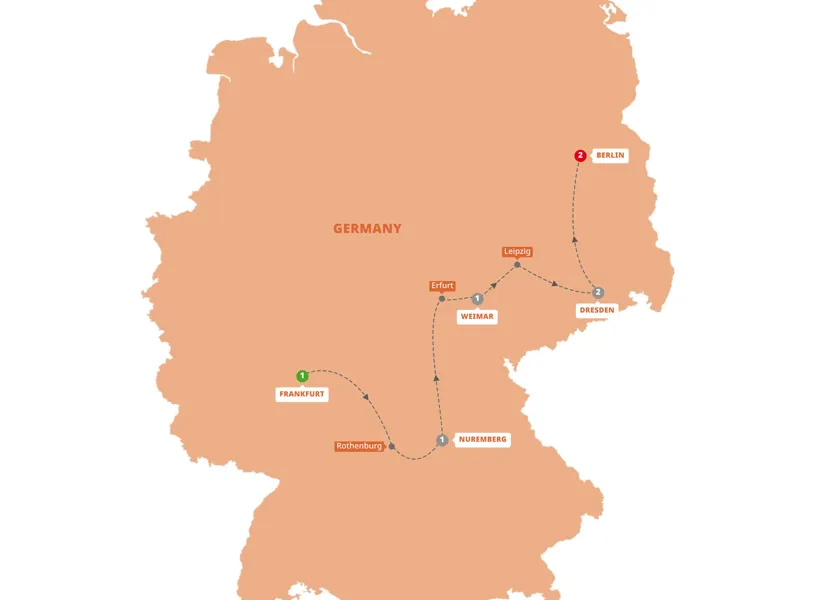Traditional Glühwein Recipe
Make this authentic German mulled wine a winter classic in your home!

Glühwein, Authentic German Mulled Wine Recipe
Yields: 6-8 servings Depending on the size of the mugs or glasses, this recipe typically yields enough Glühwein for 6-8 people.
Glühwein is a traditional German mulled wine that is especially popular during the winter months and at Christmas markets throughout Bavaria and the rest of Germany. The name "Glühwein" translates to "glow wine," a reference to the hot irons once used to heat the wine. This warm, spiced drink is a staple of festive celebrations and is cherished for its rich flavors and warming properties.
Enjoy the warmth and festive spirit that a cup of traditional Bavarian Glühwein brings, whether you're at a Christmas market or in the comfort of your own home. Prost!
Note Before Preparing
- Wine Selection: The choice of wine significantly impacts the flavor of Glühwein. A robust, fruity red wine is ideal as it holds up well against the spices. Avoid overly tannic or oaky wines, as they can result in a bitter drink.
- Sweetness: The amount of sugar can be adjusted based on personal preference. Some recipes also use honey for a richer flavor.
- Spices: While the spices listed in the recipe are traditional, you can customize them to your taste. Some people like to add nutmeg or allspice for additional warmth.
- Alcohol Content: To maintain the alcohol content, ensure the wine does not boil. If you prefer a non-alcoholic version, substitute the wine with grape juice and adjust the sweetness accordingly.
- Storage: Glühwein can be made in advance and stored in the refrigerator for up to three days. Reheat gently before serving.
Traditional Bavarian Glühwein Ingredients
- 1 bottle (750 ml) of dry red wine (a good quality Merlot, Spätburgunder, or Dornfelder works well)
- 1 orange (organic if possible, as you'll be using the peel)
- 1 lemon (optional, for a slightly more citrusy note)
- 3-4 tablespoons of sugar (adjust to taste)
- 2 cinnamon sticks
- 3-4 whole cloves
- 2 star anise
- 1 vanilla pod (or 1 teaspoon of vanilla extract)
- 2-3 cardamom pods (optional, for an added layer of flavor)
- 1 small piece of ginger (about 1 inch, peeled and sliced thin)
- 1/4 cup of water
- Optional: 1/4 cup of rum or brandy (for a stronger kick)
How to Prepare Traditional Bavarian Glühwein
Instructions:
- Prepare the citrus: Wash the orange and lemon thoroughly.
Slice the orange into thin rounds and peel strips of the lemon zest, avoiding the bitter white pith. - Heat the wine: Pour the red wine into a large pot.
Add the orange slices, lemon zest, cinnamon sticks, cloves, star anise, vanilla pod (split and scraped), cardamom pods, and ginger. - Add water and sugar: Add the water and sugar to the pot.
Stir gently to dissolve the sugar. - Simmer: Heat the mixture over low to medium heat until it's just below boiling. Avoid letting it come to a full boil, as this can burn off the alcohol and affect the flavor. Let the mixture simmer gently for about 20-30 minutes, allowing the spices to infuse.
- Optional: Add rum or brandy: If you prefer a stronger Glühwein, add the rum or brandy towards the end of the simmering process.
- Strain and serve: Strain the Glühwein to remove the spices and citrus slices. Serve hot in mugs or heat-resistant glasses.
- Garnish and enjoy: Garnish with a slice of orange or a cinnamon stick for a festive touch. Enjoy your Glühwein with traditional Bavarian treats like Lebkuchen (gingerbread) or Stollen.
Traditional German Lebkuchen Recipe
Quick History of Glühwein
The origins of Glühwein can be traced back to the Roman era when the Romans would heat wine and add spices to preserve it during long journeys. This practice spread throughout Europe, and by the Middle Ages, it became a popular winter beverage, particularly in the colder regions.
In Bavaria, Glühwein has a deep cultural significance and is an integral part of the Christmas season. It is commonly served at Christkindlmarkt, the traditional Christmas markets that light up cities and towns across Bavaria. The recipe has been passed down through generations, with each family adding its own unique touch, but the core elements remain consistent: red wine, spices, and citrus.
Frequently Asked Questions About Glühwein
Yes, white Glühwein (known as "Weißer Glühwein") is also popular, particularly in certain regions of Germany. The process is the same, but the flavor profile will be lighter and fruitier.
Substitute the red wine with grape juice, apple cider, or a mixture of both. Adjust the amount of sugar, as these alternatives are often sweeter than wine.
Absolutely! Combine all the ingredients in the slow cooker, set it on low, and let it heat for 2-3 hours. This method allows the flavors to meld beautifully without the risk of boiling.
Glühwein pairs well with sweet treats like Lebkuchen, Stollen, and roasted nuts. You can find recipes for each here!) It's also delightful with savory snacks like pretzels and bratwurst.
While you can reuse the spices, they will be less potent in the second batch. It’s generally better to use fresh spices for each new batch to ensure the best flavor.























